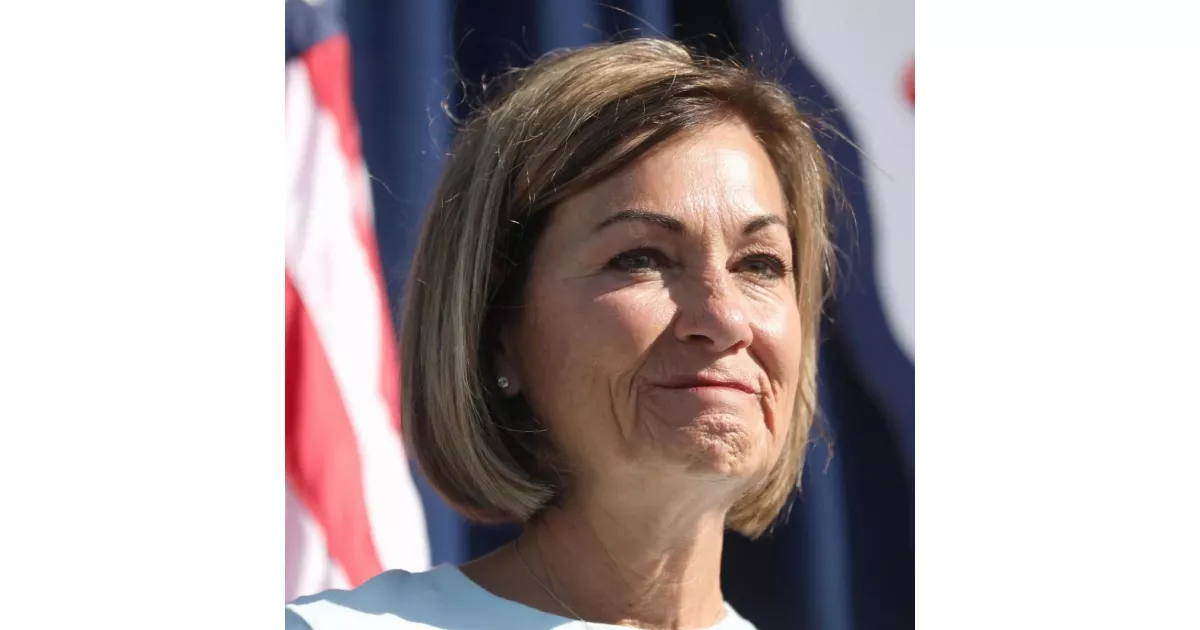A closer look at the defining struggles that shaped Kim Reynolds's life and career.
Kim Reynolds is the 43rd and current governor of Iowa, serving since 2017. As a member of the Republican Party, she holds the distinction of being the first female governor in the state's history. Her tenure signifies a milestone for women in Iowan politics.
1999: Charged with DUI
In 1999, Reynolds was charged with driving under the influence of alcohol.
August 2000: Charged with DUI
In August 2000, Reynolds was charged with driving under the influence of alcohol. She pleaded guilty to a misdemeanor.
May 25, 2017: Announced Adam Gregg as Acting Lieutenant Governor
On May 25, 2017, Kim Reynolds announced that Adam Gregg would serve as acting lieutenant governor, but not hold the official position, to avoid legal challenges after she became governor.
2018: Acknowledged Negative Impact of Trump's Trade Policies
In 2018, Kim Reynolds acknowledged that Trump's trade and tariff policies were hurting American farmers.
2018: Proposed Medicaid Cuts
In 2018, Kim Reynolds proposed cutting $10 million from Medicaid, which provides care for low-income adults, children, pregnant women, elderly adults, and people with disabilities.
January 2019: Fetal Heartbeat Bill Struck Down
In January 2019, an Iowa state judge struck down the 'fetal heartbeat bill' signed by Kim Reynolds in May 2018 as unconstitutional.
March 9, 2020: Proclamation of Disaster Emergency
On March 9, 2020, Kim Reynolds signed a Proclamation of Disaster Emergency in response to the COVID-19 pandemic.
April 2020: COVID-19 restrictions and advice
In April 2020, Iowa health officials advised Reynolds to enforce face coverings and not ease restrictions, but Reynolds advocated for reopening the economy encouraging people to be responsible and wear masks.
April 2020: Signed TestIowa Contract
In April 2020, Reynolds signed a $26 million, no-bid contract with Nomi Health to develop a COVID-19 testing program called TestIowa.
July 2020: Invalidated school districts' plans
In July 2020, Reynolds said she would invalidate some school districts' plans to limit in-person classes, overriding local school districts and requiring students to spend at least half of their schooling in classrooms.
July 2020: Sought to block local mask mandates
In July 2020, Reynolds sought to block Iowa localities' mask mandates, deeming them "not appropriate" and unlawful.
September 2020: Revoked quarantine guidelines
In September 2020, the Reynolds administration broke with the CDC's quarantine guidelines, revoking guidelines recommending that people exposed to the virus quarantine for 14 days.
October 2020: Attended Indoor Fundraiser and Rally
In October 2020, Reynolds appeared at an indoor fundraiser for the Republican Party and a large rally in a hangar for President Trump, where attendees did not wear masks or socially distance.
November 2020: COVID-19 in Iowa peaked
COVID-19 in Iowa peaked in November 2020, but remained high into the next year.
November 2020: Issued Statewide Mask Mandate
In November 2020, Reynolds issued a statewide mask mandate, requiring anyone over age 2 to wear a mask in indoor public spaces.
November 2020: Mask Mandate Issued
In November 2020, after the election, Kim Reynolds ordered the mandatory wearing of masks at large gatherings.
2020: Proposed Sales Tax Increase and Income Tax Reduction
In 2020, Kim Reynolds proposed a one-cent increase in the state sales tax (bringing it to 8 cents), offset by a phased reduction in the state income tax, including a cut in the rate for the top bracket from 9% to 5.5%.
2020: Poor Approval Ratings for COVID-19 Handling
In 2020, Kim Reynolds received poor approval ratings for her handling of the COVID-19 pandemic.
January 2021: Criticism and Investigation of COVID-19 Testing
In January 2021, Kim Reynolds faced criticism from Polk County Supervisor Matt McCoy, and State Auditor Rob Sand began an investigation into whether political donors received special treatment during COVID-19 testing over essential workers and vulnerable persons.
January 2021: State's COVID-19 Positivity and Vaccination Rates
In late January 2021, Iowa had the nation's third-highest COVID-19 positivity rate and third-lowest per capita vaccination rate.
January 2021: Signed bill requiring full-time in-person classes
In late January 2021, Reynolds signed a bill requiring school districts to provide full-time in-person classes upon parents' request.
February 2021: Rolled Back Mask Requirements and Restrictions
In February 2021, Reynolds rolled back mask requirements in indoor public places and restrictions on indoor dining without consulting experts at the Iowa Department of Public Health.
March 2021: Opposed American Rescue Plan Act
In March 2021, Reynolds voiced her opposition to the American Rescue Plan Act of 2021.
May 2021: Signed Bills Regarding Proof of Vaccination and Masks
In May 2021, Reynolds signed into law a bill prohibiting businesses and local governments from requiring proof of vaccination, and another bill prohibiting school districts from requiring masks.
March 3, 2022: Signed Bill Banning Transgender Athletes
On March 3, 2022, Reynolds signed into law a bill that bans transgender girls and women from participating on designated female sports teams.
March 22, 2023: Signed Law Banning Gender-Affirming Care for Minors
On March 22, 2023, Reynolds signed a law banning the prescription of puberty blockers, cross-sex hormones, and gender-affirming surgery to minors, as well as a law prohibiting people from using school restrooms that do not align with their sex at birth.
February 1, 2024: Introduced Bill Defining "Man" and "Woman"
On February 1, 2024, Reynolds introduced a bill defining "man" and "woman" based on reproductive anatomy and requiring that official identification documents list sex at birth.
February 28, 2025: Signed Senate File 418
On February 28, 2025, Reynolds signed Senate File 418, which eliminated gender identity as a protected class from the Iowa Civil Rights Act.
Mentioned in this timeline

Donald John Trump is an American politician media personality and...

Ron DeSantis is an American politician who has served as...

Joe Biden is an American politician who served as the...
China officially the People's Republic of China is an East...

Ashton Kutcher is an American actor producer and entrepreneur He...
Medicaid is a joint federal and state government program providing...
Trending

2 hours ago Warriors face play-in, Curry's injury raises concerns, Kerr lowers expectations, Moody's role?

2 hours ago Stephen A. Smith criticizes Draymond Green's comments on Nico Harrison as unfair.

2 hours ago Kris Dunn Recovered From Injury, Briefly Exited Game After Elbow Contact

2 hours ago Al Horford's Role Shifts: Back to Starting Lineup, Then Bench, Mindset Revealed.

3 hours ago Jafar Panahi faces restrictions, continues filmmaking despite adversity and imprisonment in Iran.
55 minutes ago Filipowski Fouls Jokic; Harkless Joins Lineup: Basketball Updates in Nuggets, Jazz, and More
Popular

Jesse Jackson is an American civil rights activist politician and...

Hillary Diane Rodham Clinton is a prominent American politician lawyer...

Jim Carrey is a Canadian-American actor and comedian celebrated for...

XXXTentacion born Jahseh Dwayne Ricardo Onfroy was a controversial yet...

Michael Joseph Jackson the King of Pop was a highly...

Kashyap Pramod Patel is an American lawyer who became the...
